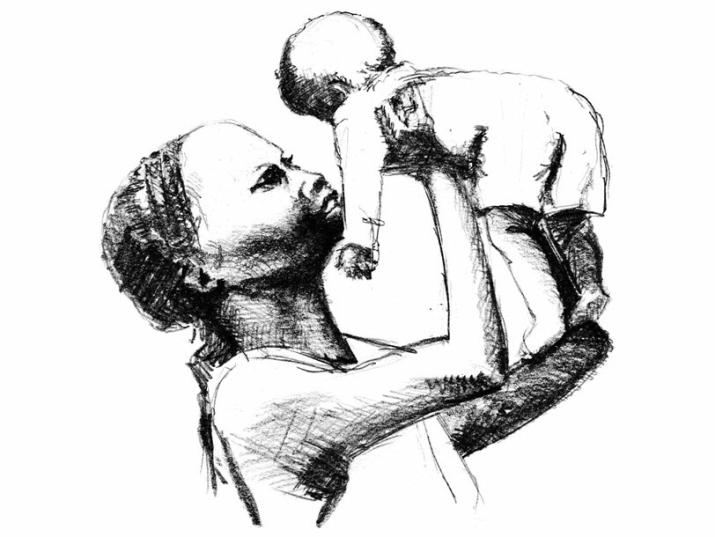
Drawing by Peter Speed.
Published October 21, 2018, last updated on October 23, 2018 under Research News
Many pregnant women with HIV struggle with disclosing their HIV status to others—particularly their partners. Those who don’t disclose often have a harder time maintaining their treatment regimen than those who do, resulting in poorer outcomes for both the mother and baby.
A recent study in Cape Town, South Africa, led by DGHI associate professor Melissa Watt in collaboration with researchers at the University of Cape Town, explored how HIV-infected pregnant women make disclosure decisions. Researchers conducted in-depth interviews with 20 women during pregnancy and postpartum. All of the women were enrolled in programs to prevent transmission of HIV to their baby.
Stigma and fear or the potential effect of the news on relationships are among the many challenges associated with disclosure. In fact, only about half of the women in the study disclosed their HIV status to the baby’s father. The women who did disclose, though, reported benefits such as increased emotional support, help with care engagement and improved self-acceptance.
The findings suggest that programs to prevent transmission of HIV from mother to baby can help women navigate disclosure decisions and conversations, ultimately improving the prospects that they’ll continue to take their antiretroviral medication. Program elements that could be helpful include training for providers on disclosure-related counseling, with a focus on active listening, compassionate patient communication and collaborative problem solving.
Funded by a grant from the Duke Center for AIDS Research, this study laid the foundation for a broader research program addressing the challenges of HIV during pregnancy.
Other DGHI authors include Elizabeth Knippler ’16, Brandon Knettel and Kathleen Sikkema.
Read the article.
The women who did disclose reported benefits such as increased emotional support, help with care engagement and improved self-acceptance.


